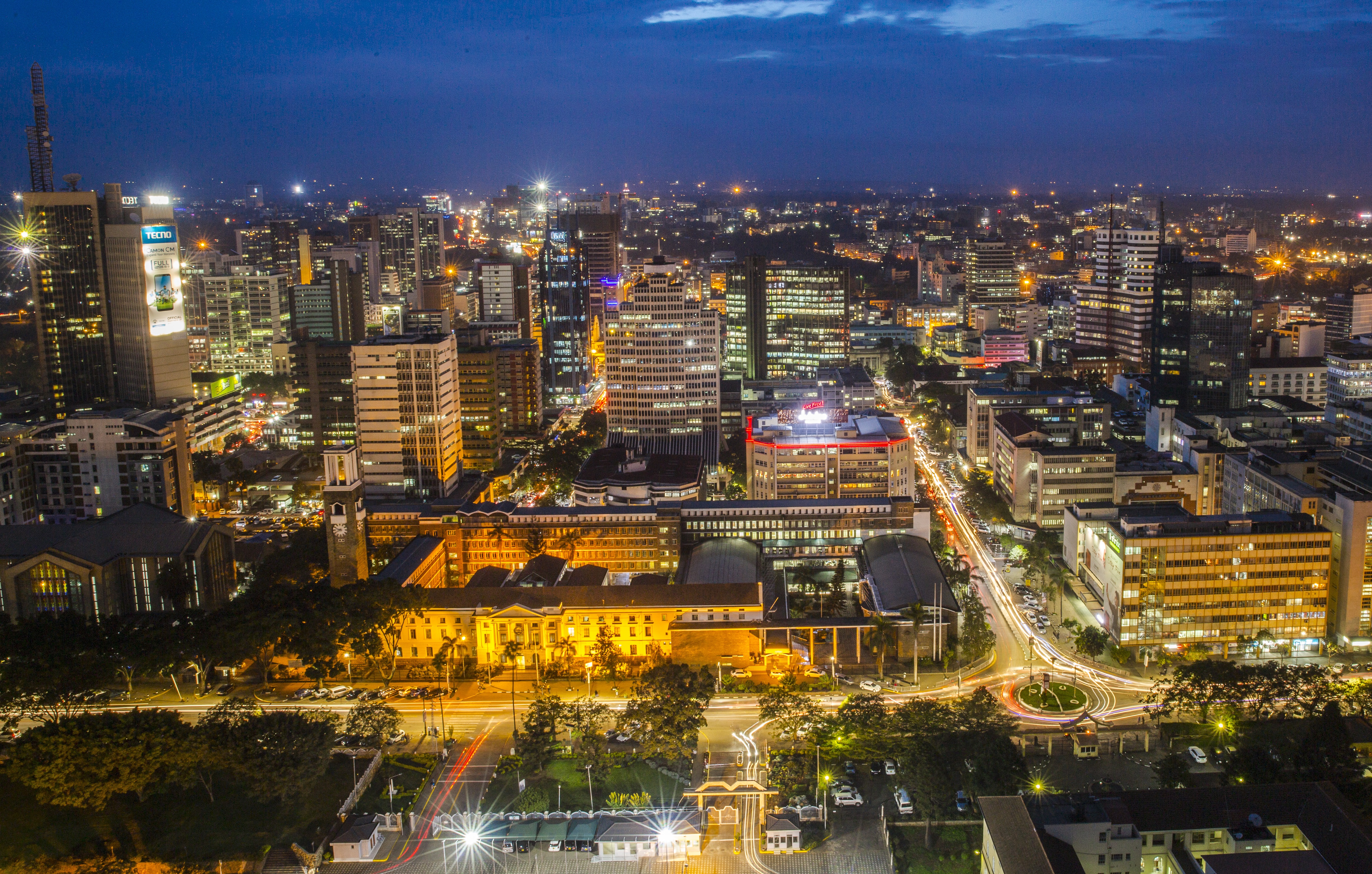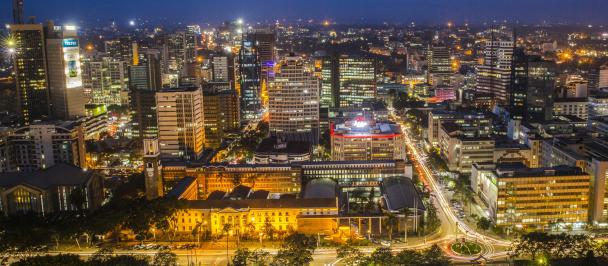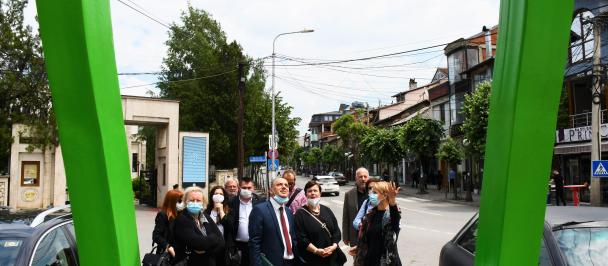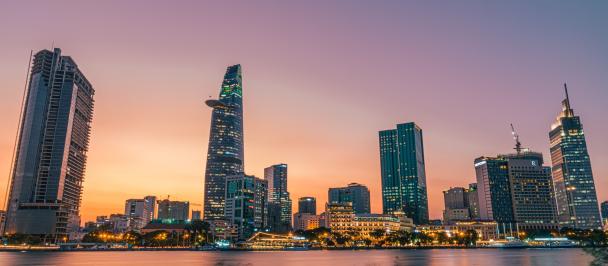Three breakthroughs that cities urgently need to achieve the SDGs
February 8, 2023

Action at the city level is critical to achieving the Sustainable Development Goals, as local governments play the role of front-line responders for service delivery, economic development, and infrastructure investments.
Since 2019, cities have become the epicentre of the COVID-19 pandemic response and recovery; climate change has been intensifying hazards in cities and the rise in the cost of living has been putting additional pressure on national and local economies globally.
These impacts of crisis experienced in cities have swelled the numbers of urban women and men in poverty to include the young, with some pursuing education and working in the informal economy.
Midway in the timeline to 2030, we find ourselves further behind on the path towards the SDGs than we were at the outset. The challenges ahead are massive, and we need bold ambition if we are to achieve the breakthroughs required.
This year, the High-Level Political Forum will review Sustainable Development Goal 11 on sustainable cities and communities. The Expert Group Meeting comprised of experts from public and private institutions happening this week, hosted by Municipality of Bilbao and the Government of Spain marks an important milestone, which UNDP is proud of co-organizing with UNDESA and UNHABITAT.
COVID-19 has highlighted that action at the city level is critical as the local governments play the role of front-line responders for service delivery, economic development, and infrastructure investments. Our lessons learnt from the pandemic response, following UNDP’s practical work with the UN socio-economic response plans in 140 countries, and the vast data and analytics obtained have helped bring breakthrough solutions for urban contexts working with partners across three transformative pathways.
1. Tackling deep-entrenched inequalities with a clear focus on gender inequities.
In 2022, Arup and UNDP conducted a global survey across 43 countries to better understand how urban spaces are responding to the needs of women. Our joint report, ‘Designing Cities that Work for Women’, confirms that more than half of women feel unsafe in public places and using public transportation. The findings send a clear message to decision makers that the way cities are designed, built, run and maintained affects women’s learning, work, leisure, political and cultural participation; cities can foster community networks and shape how safe they feel in their daily lives, or not.
Our partnership with the municipality of Bogota, in applying the Gender Equality Seal to integrate gender concerns across public institutions and policies, has resulted in the design of an easy and low-cost Care Georeferencing Tool that maps real-time information about the care supply within a city or area. It combines the more traditional approaches of gender and urban analysis with innovative methodologies to balance demand and supply of available care services, which has helped to reduce unpaid care hours for women. Efforts for implementing mapping of care services are on course in Montevideo, Uruguay, and plans are underway to scale up in other countries.

This year, the High-Level Political Forum will review progress on Sustainable Development Goal 11 on sustainable cities and communities.
2. Climate action at the local level
Addressing climate change begins in cities given that they are the main users of energy and emitters of greenhouse gas (GHG) emissions, but cities also have been leading the way in setting ambitious targets and driving innovative solutions. Cities that become more resource-efficient – in transport, heating, and cooling – could achieve reductions of up to 50 percent in energy use, GHG emissions, and resources.
Under our Climate Promise initiative, of the 120+ countries that we supported to ramp up their climate ambition, we are collaborating with governments and other stakeholders in 55 countries to integrate Nationally Determined Contribution (NDC) commitments and targets at sub-national levels of government development plans or budgets. For example, Argentina has established a formal group under its National Climate Change Cabinet to coordinate with provinces and municipalities. Sri Lanka is revising urban planning policies to gauge climate risks and mitigation potential.
If urbanization is managed well, cities can significantly contribute to meeting the NDC targets and maintain the ambition of 1.5C while increasing resilience to climate change.
3. Boosting public and private financing available for cities
Access to finance is a major constraint for city and regional governments worldwide. COVID-19 lockdowns have directly impacted local economies. Local authorities were estimated to have received 15 to 25 percent fewer revenues in 2021, putting investments in service delivery and sustainable urban development efforts in jeopardy.
In close collaboration with UNDESA and 15 UN agencies, the IMF and the EU, we are rolling-out Integrated National Financing Frameworks (INFFs) in more than 70 countries. UNDP has been promoting a bottom-up approach to the INFF through various tiers of governance coordinated by the National Planning Commissions. The INFFs offer a flexible approach to ministries for strengthening financing priorities within national institutions, through a more integrated, holistic financing framework. For example, the INFF in Ghana is leveraging resources to finance COVID-19 Recovery Plans in 5 districts in partnership with UNDP.
To achieve the scale of transformation needed in our cities, we need to urgently tackle inequality, climate, and financing through bold actions. Together, we need to rally support for greater collaboration, ensure space for local actors and stakeholders and do everything possible to support implementation of political commitments made across the New Urban Agenda, the 2030 Agenda, and the Paris Agreement.
"To achieve the scale of transformation needed in our cities, we need to urgently tackle inequality, climate, and financing through bold actions."

 Locations
Locations




